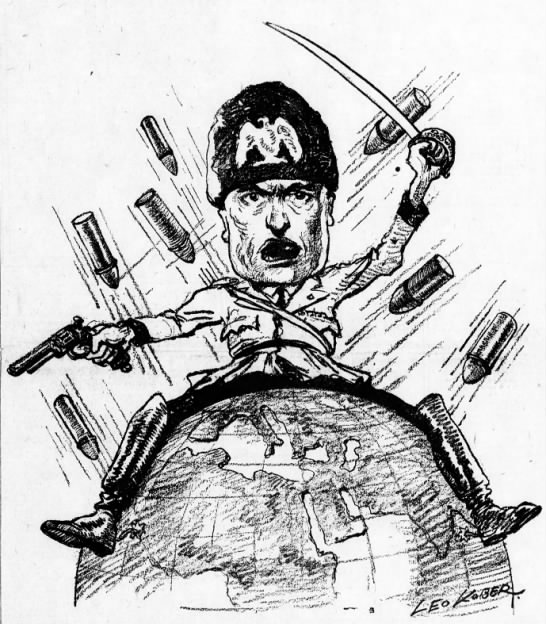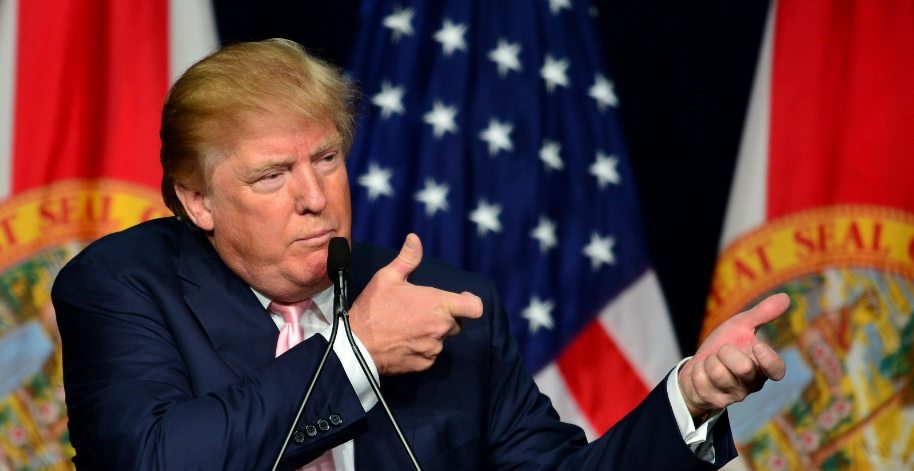As I’ve noted many times, Benito Mussolini is the truest historical analog for Donald Trump, each of them a vulgar, unhinged clown not taken seriously until too late. Of course, that doesn’t mean they’re precisely the same nor are their milieus. We can’t prepare for the future by expecting it to be identical to the past, though it can teach plenty
In “An American Authoritarian,” Ruth Ben-Ghiat’s smart Atlantic essay, the writer explores the similarities and differences between the two buffoonish, dangerous figures. Early in the piece, she writes that “Trump is not a Fascist. He does not aim to establish a one-party state.” That may be true in form but perhaps not in function. I wonder if he intends to use the office of the President and the loyalists he appoints to create a de facto one-party system even if the ornaments of the traditional arrangement remain. Also: Believing an aspiring autocrat’s more soothing words is usually a mistake. Mussolini boasted in the early 1920s that Italy’s free press was the envy of the world, and a decade later he was dictating front-page stories to newspapers at the point of a Carcano. When it comes to tyrants (and ones with those aspirations), believe the threats and doubt the rest.
An excerpt:
A century before Trump, Benito Mussolini burst onto the Italian political scene, confounding the country’s political establishment with his unorthodox doctrine and tactics and his outsized personality. Mussolini’s rise offers lessons for understanding the Trump phenomenon—and why he was able to disarm much of the American political class.
Many Italians did not know what to make of Mussolini when the former Socialist founded Fascism as an “anti-party” on the heels of World War I. His was an outsider movement, born from the conviction that the establishment parties—along with the political systems they represented, liberalism and socialism—were broken or posed a grave threat to Italy.
A mercurial hothead, Mussolini reveled in his role as a political disrupter. His crisis-mongering platforms contained a confusing blend of socialist and nationalist tenets, trafficking in contradiction and paradox, the better to challenge traditional ideas about politics. “Does Fascism aim at restoring the State, or subverting it? Is it order or disorder?” he taunted Italians in print six months before he took over as prime minister.
His grassroots followers spoke more directly, terrorizing Italy’s hinterland as a prelude to claiming control. Taking Mussolini’s incendiary rhetoric to heart, his blackshirts beat and executed thousands of political opponents—including priests—at rallies and on trains, in shops, schools, and taverns. Everyday violence primed the country for an exceptional outcome: In 1922, Mussolini staged a march on Rome and demanded the post of prime minister from the terrified king.
Italians learned in the 1920s what Americans are learning in 2016: Charismatic authoritarians seeking political office cannot be understood through the framework of traditional politics. They lack interest in, and patience for, established protocols. They often trust few outside of their own families, or those they already control, making collaboration and relationship building difficult. They work from a different playbook, and so must those who intend to confront them.•


